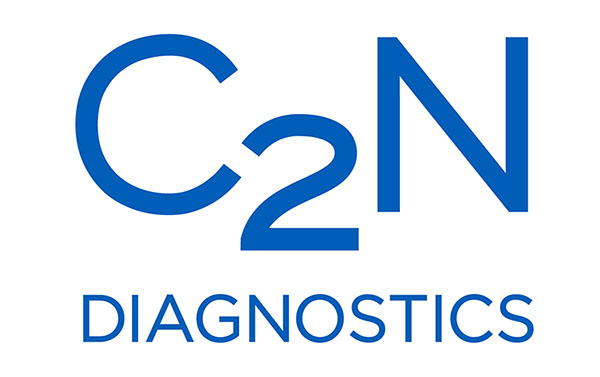The availability of disease-modifying treatments (DMTs) for early symptomatic Alzheimer’s disease (AD) has greatly increased the need for clinical AD biomarker testing, which is helpful in determining whether cognitive impairment is caused by AD brain pathology or some other condition. Biomarker evidence of amyloid pathology is essential before the initiation of AD DMTs. This webinar will review the types of AD biomarker tests that are clinically available, including cerebrospinal fluid (CSF) biomarkers, amyloid positron emission tomography (PET) and AD blood tests.
Currently, CSF biomarkers are the most commonly used AD biomarker modality in the clinic, but there is limited availability of providers skilled in performing lumbar puncture (LP) to collect CSF, some patients refuse LP due to perceived invasiveness, and LP is inadequately reimbursed. Amyloid PET was previously not covered by insurers outside of clinical trials. While there may be improved coverage of amyloid PET in the future, it remains an expensive procedure with a substantial co-pay for many patients, and PET requires highly specialized equipment and personnel, which will likely limit its use.
Read more...
Fortunately, some AD blood tests are now available that classify amyloid status with an accuracy similar to The Food and Drug Administration (FDA)-approved CSF tests. The ratio of phosphorylated to non-phosphorylated tubulin associated unit (tau) at position 217 (p-tau217 ratio) has demonstrated particularly high performance in classifying amyloid status, likely because the effects of kidney function and other confounding biological processes are decreased by using the ratio. In early studies, the combination of plasma Abeta amyloid 42 40 ratio (Aβ42/40) and the p-tau217 ratio performs consistently in classifying amyloid status in both self-identified black and white individuals.
Read Less...
Given the tremendous practical benefits of AD blood tests, including enabling broader access to early and accurate AD diagnosis and DMTs, it seems highly likely that high-performance AD blood tests will become the dominant modality for clinical AD biomarker testing. Register for this webinar to learn more about different AD biomarker testing modalities, and the particular promise of high-performance AD blood tests.
Note: Dr. Schindler is not receiving compensation from C2N Diagnostics and will review multiple high-accuracy AD blood tests
Speaker

Suzanne E. Schindler, MD, PhD, Associate Professor of Neurology, Washington University
Dr. Suzanne Schindler is a Clinical Neurologist and Neuroscientist focused on improving the diagnosis and treatment of Alzheimer’s disease. She completed the MD/PhD program at Washington University, where she studied the basic biology of apolipoprotein E, a key protein implicated in Alzheimer’s disease pathogenesis. Dr. Schindler then trained in clinical neurology at Washington University and completed a fellowship in dementia.
Currently, Dr. Schindler sees patients with memory concerns and coordinates biomarker testing for the Washington University Memory Diagnostic Center. She leads the Fluid Biomarker Core for the Knight Alzheimer Disease Research Center, which includes coordinating numerous collaborations. She received a large R01 to evaluate novel plasma biomarkers of Alzheimer’s disease. She is very interested in translating research findings into clinical practice. Further, she has a particular focus on understanding and reducing disparities in healthcare.
Who Should Attend?
This webinar will appeal to:
- Neurologists
- Primary Care Physicians
- Internal Medicine Physicians
- Gerontologists
- Geriatricians
What You Will Learn
Attendees will gain insights into:
- The challenges in clinical practice that limit the use of CSF fluid biomarkers and amyloid PET for optimal patient care
- The practical benefits of blood tests for patients with signs or symptoms of cognitive impairment who are undergoing evaluation for AD
- The variability in the diagnostic performance of AD blood tests and how performance affects the clinical use of tests
- How certain AD blood tests have comparable accuracy to FDA-cleared CSF tests based on observed data from rigorous clinical studies
Xtalks Partner
C₂N Diagnostics
C₂N Diagnostics, LLC (C₂N) is a specialty diagnostics company that strives to provide exceptional laboratory services and products in the field of brain health. C₂N’s high-resolution mass spectrometry-based biomarker services and products are used for: clinical decision-making to improve patient care, including diagnosis and treatment monitoring; maximizing the quality and efficiency of clinical trials that test novel treatments for neurodegeneration; and providing innovative tools to help healthcare researchers better understand novel mechanisms of disease, identify new treatment targets, and conduct important epidemiologic studies to improve global public health. C₂N assays have been used in over 100 Alzheimer’s disease and other research studies throughout the U.S. and the world. This includes landmark treatment and prevention trials involving disease-modifying therapies. C₂N has ongoing collaborations with multi-national pharmaceutical and biotech companies. Over 15,000 Precivity™-related biomarker measures have been reported through peer-reviewed publications, with many more manuscripts currently under review.
You Must Login To Register for this Free Webinar
Already have an account? LOGIN HERE. If you don’t have an account you need to create a free account.
Create Account
